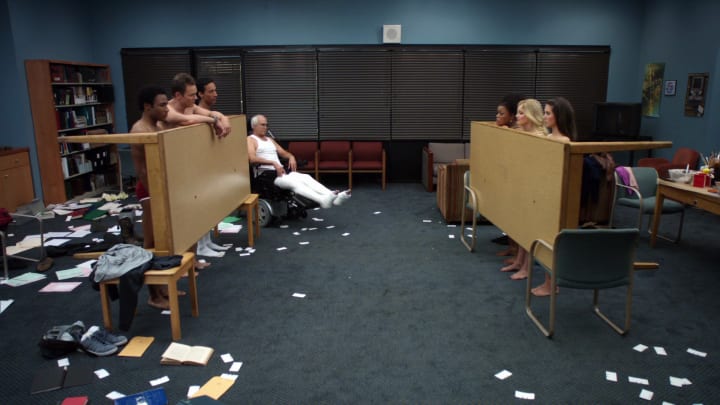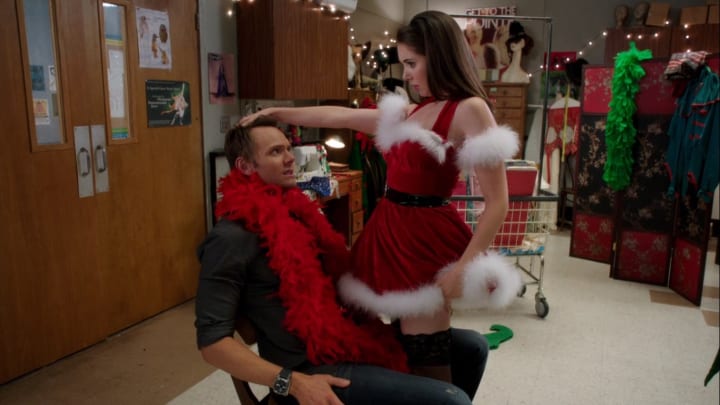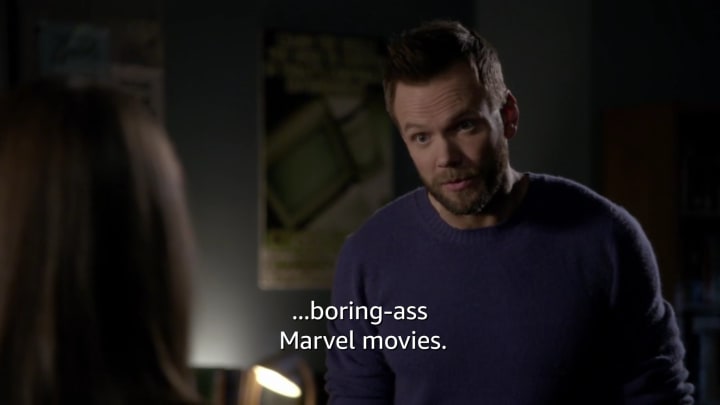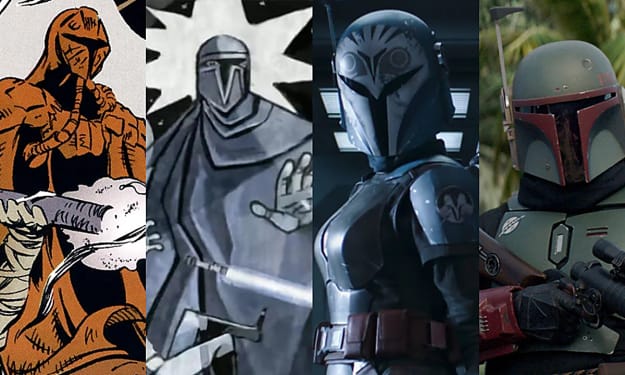We're All Human Beings
Why the 2010's sitcom that could barely get high enough ratings to continue is kept alive by a cult following

All other sitcoms can gladly sit down, as Community takes the cake and eats it too.

Reliant on it's sharp comedy and pop-culture references that require several rewinds to catch everything, it's no wonder that Community did not have a great run during a time on TV dominated by laugh tracks. The world just wasn't ready for it yet. But, boy, have times changed.
Initially following the path of silver-tongued, sport-coat-and-jogger-wearing Jeff Winger, an ex-lawyer who has to go slum it at Greendale Community College after being disbarred due to a less than legitimate degree, it tells the story of seven motley members of a Spanish study group including Britta Perry (Gillian Jacobs), inept activist and anarchist cat owner; Shirley Bennett (Yvette Nicole Brown), devout Christian mother who may or may not have experience with slamming someone’s head through a jukebox; Annie Edison (Alison Brie), sweet but neurotic overachiever with a brief pill addiction; Troy Barnes (Donald Glover), lovable less-than-intelligent ex-high school quarterback; Abed Nadir (Danny Pudi), hyper-aware, fourth-wall-breaking media buff; and Pierce Hawthorne, of Hawthorne Moist Towelettes, (Chevy Chase) out of touch jerkass (sometimes) with a heart of gold; who all, despite their differences, surpass friendship and form a family.
Consistently regarded as one of the most innovative half hours on television, this show rightfully sits in the upper echelons of comedy. But what sets it apart?
The Answer’s in the Name.
With such strongly written characters, a plethora of parodies, and a meticulous attention to detail, this show challenges the idea of what a sitcom should be all whilst triggering something in the brain that makes one feel like friends are around, and thus — living up to its namesake — are part of a community. In this case, a community of cross-dressing deans, life-or-death paintball tournaments and pick-pocketing monkeys. The fan base around it, dubbed the Human Beings after the school mascot, find solace in it’s insanity.
Aided by the setting of community college, a place no one tends to take seriously in the first place, the malleability allows for any antics — from a school-wide pillow fight framed as a war documentary, to hosting the environmentalist efforts of Green Week featuring performances from Green Daeye, an Irish folk ensemble.


If it wasn't obvious by these screen pulls, Community takes the mundane and makes it insane in the best way possible. Though somehow, despite the complete abandonment of normalcy, nothing truly seems too outlandish to happen. This is due largely to how well the actors mesh and riff off one another. Somehow Pierce can nonchalantly explain that after his mother’s passing, her essence was stored in an “Energon Pod” by their Reformed Neo Buddist church and no one bats an eye. Likewise, Abed can stream Kickpuncher on a date with a secret service agent and it’s accepted. The chemistry between the cast is obvious. It is this ease that allows for any interactions or jokes to feel completely natural. They speak, act and react like real friends, because they are just that.

This comradery begs viewers to form parasocial relationships. Without this bond, the show might as well be SNL. The characters are rough around the edges, but it’s that which makes them so relatable. Every character is fundamentally flawed in their personality, but it’s always out on the table. They all have a reason for being who they are, and it's that introspective examination of the characters’ complex personalities that unwittingly shows us parts of ourselves — not the shellacked shells of people we’re told to be, but really who we are — in all of our shortcomings. And with that, why we still deserve compassion. Not one of the characters had a great life outside of the friend group no matter how much they wished to be perceived that way. It goes to show that it’s really about the family you choose for yourself.
Meta-culous Attention to Detail
Even before the cast was chosen or the pilot was pitched, this show started off meta. Though all the main characters share a pretty equal spotlight, the two to watch are certainly Jeff, a narcissistic asshole who can't accept his age, often coming dangerously close to robbing the cradle, and Abed, an undiagnosable film-and-commentary-obsessed social outcast. Sound like anyone in particular? Personally, creator Dan Harmon comes to mind. Of course, I mean that in the highest regard, as he’s assumed the “Author Avatar” trope as true himself. This awareness translates through the tv, allowing the show to not take itself too seriously, frequently alluding to the fact that they are part of a fictional world.
Abed serves as a conduit for the audience, giving them an in and forming a feeling that only friends with inside jokes could have. It’s this wink-wink, nudge-nudge behavior that drew in fans and has kept them in a tight-knit, well, community.
But, don’t take it from me — see for yourself.



This only brushes the top of the metafictional masterpiece that is Community. Fans can rewatch the show over and over as there are so many jokes and jabs unnoticed the first, second and third time around.
Everything has a theme and purpose. No detail, no matter how small, is overlooked — from notes left on blackboards to what class the Greendale Seven took together each year: Spanish as they learned to communicate with each other, Anthropology as they grew into a tribe, Biology as they struggled to evolve, and History as they came to terms with their past. Multiple dissertations could be written on what is often glazed over as just a sitcom. In fact, some say that instead of being another passive brain-rotting consumption of media, watching this show can actually make you smarter. Of course, maybe we’ve just osmosised a little too much Jeff Winger and have gotten cocky.
“I Prefer the Term ‘Homage’”
Community is a sitcom in the same sense that The Onion is a reputable news source. It’s a spoof of the entire notion of a sitcom, thereby using its power to make a mockery of its own industry while still satirically showcasing the tropes’ ability to tell a good story when given a fresh spin.
This show effortlessly manages to breathe new life into timeless tales. In the span of twenty minutes, it spoofs movies and shows we all know and love with jokes at every turn. Be it Rudolph, or My Dinner with Andre or Law and Order. Episodes are shot in claymation, commercial style, and everything in between — even throwing in the occasional musical number.


Of course, there’s a method to the madness, and when you take away all the deconstruction of parodies and cliches and tropes, you see that at its core, Community deals with flawed people trying their best to be good. Past the parodies, every story is an opportunity to see growth in the characters.
The Soul Shows Through the Gag.

People don’t become puppets for shock value, nor do they give a dog a degree for the sake of being different. No matter how bizarre or flat out stupid it sounds, everything is done in service to developing and exploring the characters.
For example, an apocalyptic spin on the Floor is Lava game should feel childish and pointless, but the way it’s presented and how the emotions of the characters manifest into the real world makes them feel genuine. It's hilarious and heartbreaking and real to see grown people attempting to process their feelings by any means possible no matter how ridiculous it may seem from the outside.

This show is raw. It asks nothing of anyone. It doesn’t even ask to be accepted. Despite, and perhaps in spite of, dangerously low ratings, it kept true to its core and found people who took it as it is instead of changing for mass appeal.
The absurdity of it mirrors the absurdity of the media-crazed world. So much of our lives are compared side-by-side to pop culture’s perfect depiction of the human experience: grand declarations of love, epic monlogues, every loose end tying up neatly. But life doesn’t consist of fictional characters and perfectly planned plots. Instead, it is chock-full of chaos and change. Community wanted to emulate a life that is actually obtainable, and if you ask me, even having a Spanish professor living in the vents, demanding to be called El Tigre, is infinitely more likely to happen than your life going exactly how you plan it to.
These values got them through six seasons, 110 episodes and two broadcasting networks. They were truly ahead of their time, constantly trying new things and breaking all the rules of what a sitcom should be. Even now, 12 years since its release, the cult fan base is still shouting their praise, aching for a fulfillment to Abed’s series wide prophecy of #sixseasonandamovie. But you can't rush art.
It goes without saying that Abed says it best, "TV defeats its own purpose when it's pushing an agenda, or trying to defeat other TV or being proud or ashamed of itself for existing. More importantly, it has to be joyful, effortless, fun. It's TV, it's comfort. It's a friend you've known so well, and for so long you just let it be with you. And it needs to be okay for it to have a bad day, or phone in a day."
Community allows you to be yourself, as long as you allow it to do the same. So, come be part of something greater. Come be part of a community.







Comments
There are no comments for this story
Be the first to respond and start the conversation.